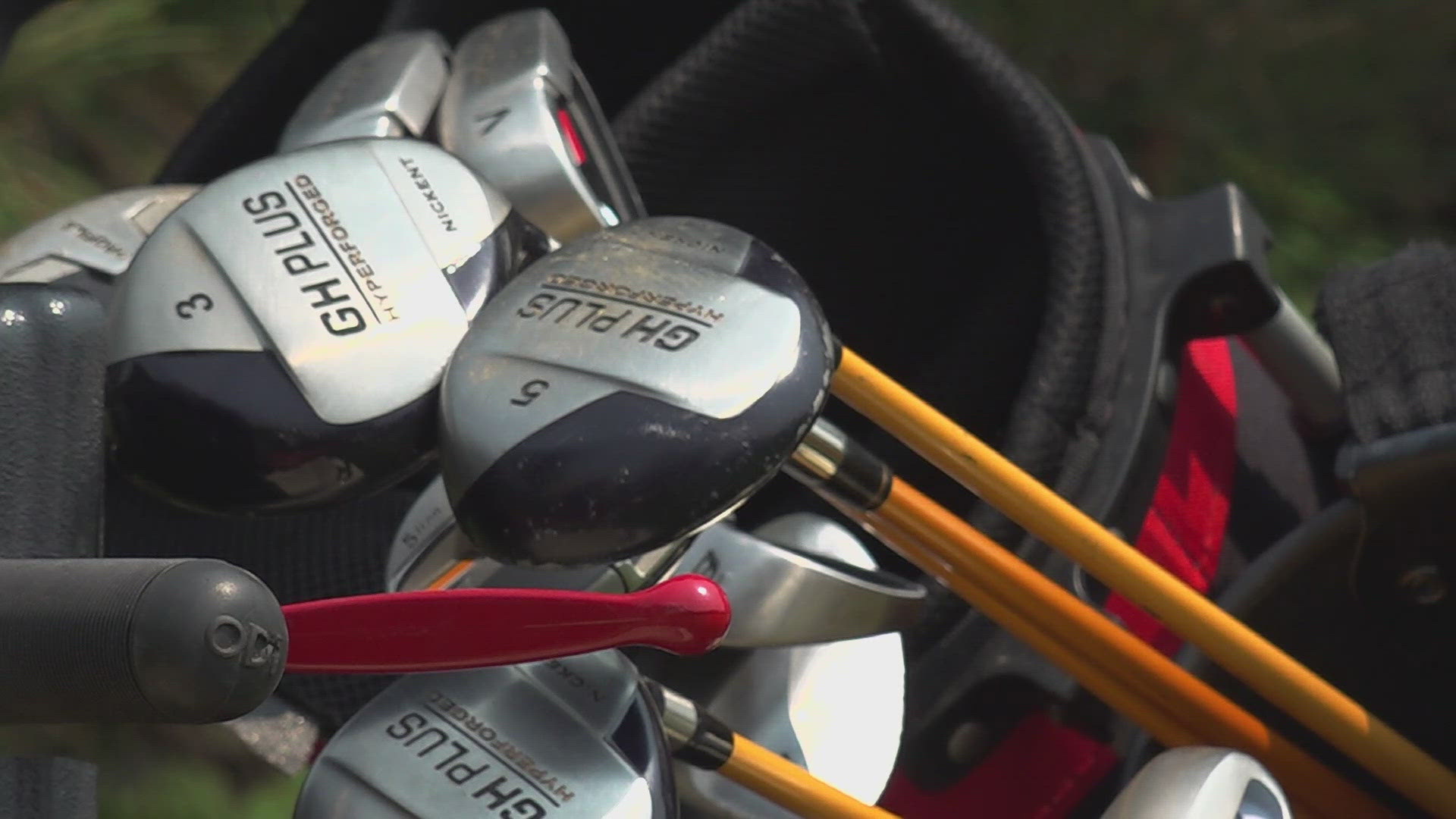DENVER — Golf is often considered one of the most expensive sports but for Quinn Brett, a day on the course is invaluable.
Unlike many golfers who spend hundreds on the latest clubs and gear, Brett has added a unique tool to her bag that’s transforming her game.
Quinn has been paralyzed from the waist down since a climbing accident in 2017. It was during her search for adaptive sports equipment that she discovered the VertaCat.
“It’s an incredibly emotional journey, going from someone who could run around mountains doing whatever I wanted, whenever I wanted, to sitting,” Brett said.
The VertaCat golf cart is a breakthrough in technology, helping golfers with disabilities navigate the course. This motorized cart allows players to stand, swing, and move with ease.
Through its Adaptive Golf program, Denver Golf has acquired four of these carts, which are now available at Kennedy, Overland Park, and Willis Case golf courses. The goal is to make golf accessible to everyone.
“Technology has come along, especially in the last 10 years, with, like, motorized things to help us get around,” Brett said. “Almost any sport, these days, someone has now invented it for people with disabilities to also do it.”
The carts are costly, ranging from $16,000 to $30,000, but their impact is profound. Drew Greer from City of Denver Golf mentioned that some older models have been donated to local courses, increasing accessibility.
“We call it the stand-up and play cart,” Greer said. “You’re able to be in a standing position while also seated, strapped in by the chest, as well as the legs.”
Patients from Craig Hospital and a few regulars have already started using the carts for rehabilitation at least once a week, and Greer often joins them on the course.
“I like to go out and play the round with our adaptive golf users. For me, it’s very fulfilling. It’s exciting. It’s rewarding,” Greer said.
A study by the National Center on Accessibility at Indiana University, in cooperation with Clemson University, found that approximately 10% of people with disabilities now play golf.
The study also revealed that 22% of those who played golf before their disability no longer play, while 35% are interested in learning.
Quinn said she believes these carts are just what people with disabilities are missing.
“A journey in itself is getting over society but then getting over yourself and knowing that you are productive and you are very capable,” Brett said. “Finding these types of experiences or equipment to help return us to society and being seen out is super important.”
The predecessor to the VertaCat, the SoloRider cart, was created in 1994 with limited capabilities.
“A lot of companies or golf courses have these older style ones that aren’t so great, but they at least get you out there,” Brett said.
The new Paramobile carts have made significant advancements, even making their way onto the professional stage when Max Togisala used a VertaCat to win the 2023 USGA Adaptive Open.
The adaptive golf program is still in its early stages, but Greer said Denver Golf hopes to build the program up this year so they can receive more scholarships and grants to purchase more adaptive carts and get more people, like Brett, back on the course.
Click here for more information on Denver Golf’s Adaptive Golf program:

